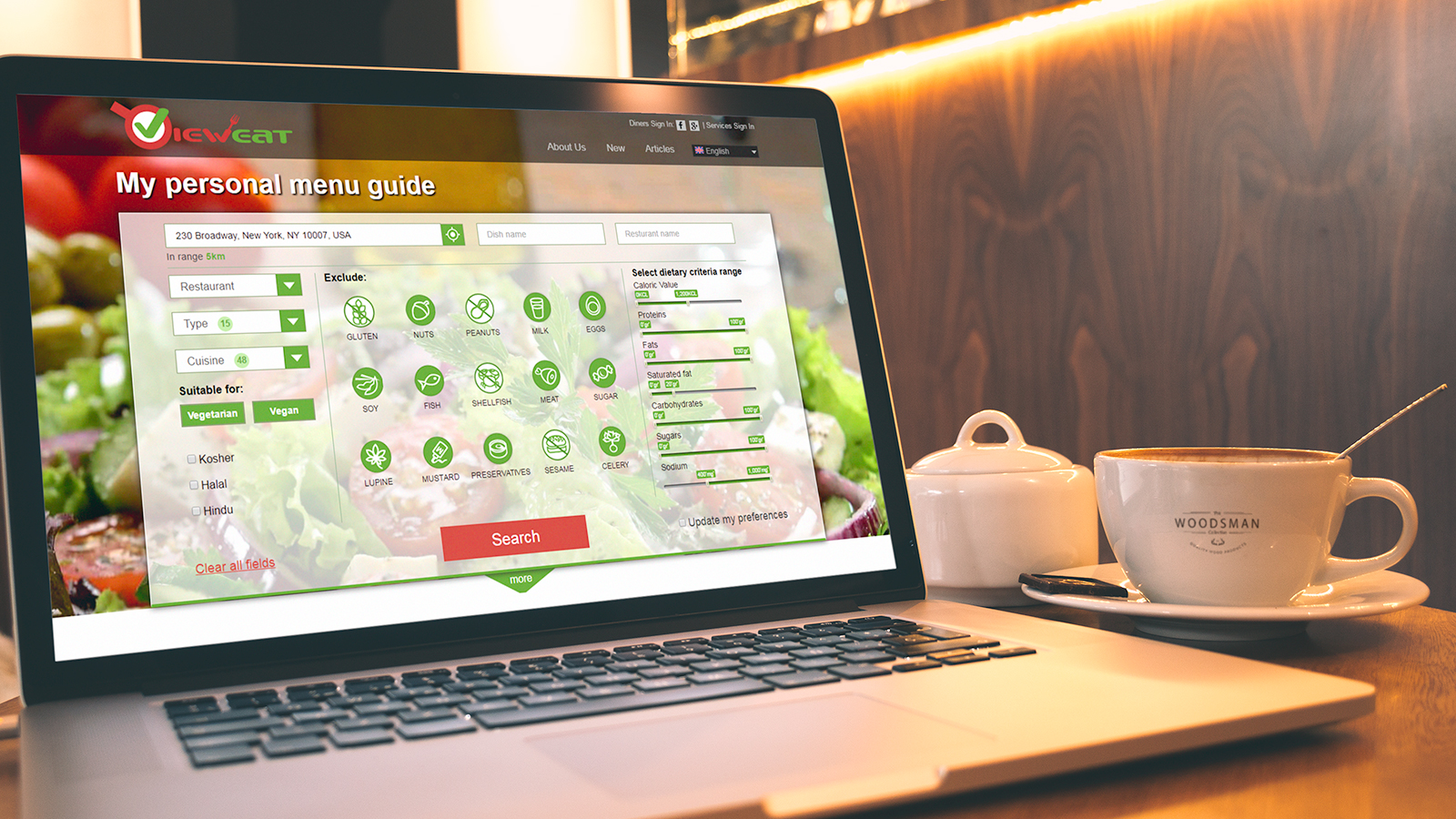Whether you have food allergies or health concerns, if you’re vegan or vegetarian, Atkins or paleo, the Israeli founders of ViewEat want to make your international dining-out experience as easy as possible.
Still in its infancy, the ViewEat project has thus far incorporated ingredient information publicly available from dozens of global chain restaurants in about 180,000 locations across the US and UK. That data is updated regularly.
On your desktop or mobile device, enter a search based on the types of food you’re seeking and those you must avoid, and the general location where you want to eat. You’ll get a visual map of menu items marked with a red octagon (avoid), yellow square (meaning traces of the objectionable ingredient could be found or there’s insufficient data) or green circle (safe).
The full menu or selected items, tailored to the users’ criteria, are available as web pages and as a printable PDF.
Roll over the data with your mouse and you’ll see textual data in a choice of eight languages: English, Arabic, German, Spanish, Hebrew, Russian, Spanish, Italian or French. So if you’re an English-speaker at a restaurant in France, you don’t need to know the language in order to make sure what you’re ordering meets your dietary needs.
And it’s all available for free.

“We are now in the process of inserting data and making it user-friendly,” says CEO Omer Sela of Kfar Saba. “However, already a person with a peanut allergy or on a low-salt diet, for example, can find at least some matches in chain restaurant menus and we’ll increase our database next year.”
Later on, ViewEat will make it possible for independent restaurants to add their ingredient info and keep it updated themselves.
“ViewEat is not a guarantee for allergy safety,” Sela cautions. “It is a system that allows information to get to the diner faster and more easily. We won’t say a restaurant is totally clean of peanuts or whatever. We say this is what the restaurant claims and you have to check further.”
Sela says most restaurant chains provide ingredient data online, but usually in a format that is not easy to decipher. And other nutrition-oriented apps don’t have exactly the same focus as ViewEat.
“We appreciate other websites and apps which present some or elaborate data on nutritional values,” he tells ISRAEL21c.
“However, after thorough market research, we believe that the ViewEat concept is the most comprehensive solution for a large variety of needs — food allergies, food sensitivities, lactose intolerance, obesity, diabetes, low fat/sugar/salt or high-protein diets as well as kosher or halal options in relevant restaurants — combined with a multilingual and graphic intuitive interface and labeling that can be understood in any culture.”
Seeking investors and feedback
Sela, an expert in public policy, energy and environmental policy at the Federation of Israeli Chambers of Commerce, started conceiving of ViewEat back in 2005, when he represented the Israeli Ministry of Infrastructure at a conference in Austria and saw that the hosts didn’t understand the traditional and religious needs of participants from Mediterranean countries.
That experience, put together with his own food sensitivities and strict diet, led him to gather likeminded friends to invest in developing ViewEat. His passion for the “very dear pet project” was heightened with the arrival of his now two-year-old son, who has food allergies.
Another driver for establishing ViewEat, he says, is the multicultural stew of Israeli society with its mix of mother tongues and indigenous and immigrant populations.
As CEO, Sela oversees a team consisting of project manager-technical developer Uri Bahbut, graphic designer Veronica M. Weiss, and culinary adviser Arik Pyanko, a chef and chocolatier who manages Nanuchka vegetarian restaurant in Tel Aviv.
They hope to expand their database beyond restaurants to pubs, hotels, spas, bakeries, catering and event halls, cruise ships and even airlines and nursery schools and universities.
“We are looking for investors who understand the importance of dietary data,” Sela says. “Obesity, diabetes and food allergies are all on the rise in the Western world and this has economic implications so we’d like to have an investor to help us speed up the project and make it available in other parts of the world.”
Sela says he welcomes feedback (no pun intended) from ISRAEL21c readers. Contact him at omer@vieweat.com or on Facebook.
For more information, click here.

















